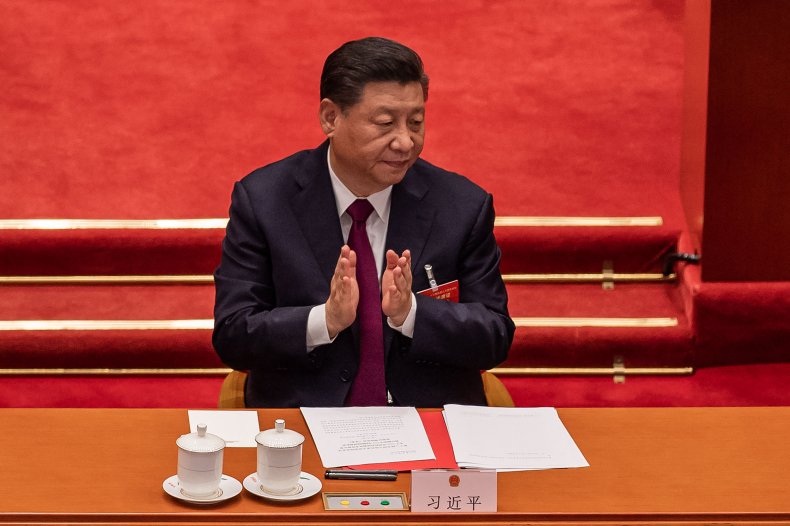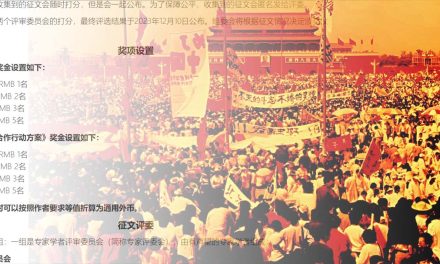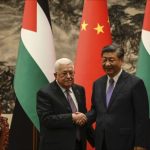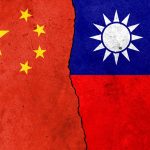By JIANLI YANG
Just before the 47th G7 summit convened in England, the Standing Committee of the National People’s Congress of China hastily passed its new law on countering foreign sanctions, seeking to achieve a deterrent effect prior to the G7 meeting to dissuade member states from imposing new sanctions against China under pressure from the U.S.
Despite not being a member of the Group of Seven, China still sought to “participate” from behind the scenes. Before departing for Europe, President Joe Biden stated that how to deal with China would top the agenda. Prior to this, in response to concerns about forced labor in Xinjiang and the suppression of human rights in Hong Kong, several G7 and European Union countries imposed sanctions on certain Chinese companies and individuals, after which Beijing imposed counter-sanctions on the countries in question.
If G7 member states agreed to impose new sanctions on Chinese companies and individuals, they would undoubtedly be an “upgraded version” of prior sanctions. Doing so would demonstrate the shared resolve of the seven most powerful countries in the West to resist totalitarian China. Beijing was wary of this, and thus deemed it necessary to take preventive actions. Consequently, on the eve of the G7 summit, the Chinese Communist Party passed the Law on Countering Foreign Sanctions (also known as the Anti-Foreign Sanctions Law). The law is intended to influence countries that are not as strong as the United States and the United Kingdom (such as Germany, Japan and other states that are less willing to stand up against China) to consider the cost of Chinese countermeasures and choose not to go along with U.S. sanctions.
Nearly six months since Biden took office, China has clearly demonstrated that Washington must shed the illusion that U.S.-China relations can return to some sort of pre-Donald Trump status quo. Seeing that the relationship between the U.S. and China isn’t getting better, Beijing feels justified in using all available means and tools to counter the West’s attempt to contain China.
At a CCP Politburo study meeting held on the afternoon of May 31, Chinese President Xi Jinping instructed officials to do a good job of telling the “Chinese story”—to propagate the voice of China, ensure that China has an international voice commensurate with its comprehensive national power and global status, “grasp the right tone,” be “modest and humble,” pay attention to the “strategy and art of the ‘public opinion struggle'” and “elevate the persuasiveness of Chinese discourse.” Observers have noted that Xi wants to make some adjustments to China’s wolf warrior diplomacy.

However, it was Xi Jinping himself who first introduced China’s wolf warrior diplomacy. Wolf warrior diplomacy originated from what Chinese Foreign Minister Wang Yi referred to as Xi Jinping’s “great diplomatic philosophy.” Moreover, it was Xi himself who bolstered the Chinese public’s sense of nationalism as part of a strategy to further consolidate his power and increase his prestige. Over the past two years, Xi Jinping demanded that Chinese diplomats demonstrate a “fighting spirit” and take a tough stance on Sino-U.S. relations and international challenges.
The fact that the CCP’s diplomatic efforts have hit a brick wall beyond China’s borders is not essentially a question of the choice of words, tone, or posture adopted by Chinese diplomats. Rather, the fundamental problem is one of soft power. As long as Xi fails to change his “great diplomatic philosophy,” as long as he continues to rely on strong nationalist sentiment to maintain his power and prestige, and as long as the CCP maintains its present course and continues to commit gross violations of human rights, then no matter what superficial changes Xi makes with respect to form and style, no one will regard him as trustworthy, respectable, or likeable and China’s wolf warrior diplomacy will continue to rear its ugly head time and again.
China’s passage of the Law on Countering Foreign Sanctions makes it abundantly clear that Xi does not intend to reduce his confrontational approach, let alone abandon confrontation altogether.
Although the law increases deterrence against multinational corporations in the U.S. and other Western countries, it will undoubtedly lead to more resistance. The West, especially the United States, will not lift sanctions against China simply because of the law’s introduction. On the contrary, it may provoke the U.S. to use even more power and resources to fight China. Of course, Beijing must have considered such consequences when introducing the law, but despite knowing what the result would be, the CCP rushed to pass it before the G7 summit. This demonstrates that Xi is ready for an escalated confrontation between China and the United States as a result of the law.
Dr. Jianli Yang is founder and president of Citizen Power Initiatives for China.
The views expressed in this article are the writer’s own.
This article first appeared in Newsweek on 6/18/21






















